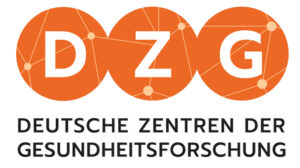Research
Healthy children and adolescents through science – for a better life
Research
Healthy children and adolescents through science – for a better life
Main research areas of the German Center for Child and Adolescent Health
In a translational research approach, the DZKJ interlinks basic research, clinical research and clinical application up to personalized therapy and prevention. The core element of the joint strategy is the bundling of existing clinical competencies and scientific expertise with a simultaneous close networking of research infrastructures.
The DZKJ research program will address projects on healthy development, genetic and pathophysiological aspects of rare and common diseases, predisposition and vulnerable phases of disease development, new diagnostic methods, new therapeutic approaches, and prevention measures. For this purpose, seven central DZKJ research foci have been selected, each coordinated by two sites.
Rare Genetic Diseases
The diagnosis and treatment of rare diseases, including undiagnosed diseases mostly of genetic origin, is an essential part of pediatric medicine and poses a particular challenge for society. We will develop a translational pipeline from up-front molecular diagnosis to unraveling of disease mechanisms and targeted treatment programs for specific rare disease entities.
Immunity, Inflammation, Infection
Understanding the development of a healthy immune system, its response to challenge, e.g., by infection and its aberration in genetically defined immunodeficiencies is expected to highlight genes and pathways that are critical for common diseases such as autoinflammation and allergy. This will not only open new paths for endotyping complex diseases and stratifying therapies but also allow for the discovery of new therapeutic targets and the design of precision medicine.
CNS Development and Neurological Diseases
Basic science on understanding molecular, structural, and functional networks of the CNS will identify key factors for physiological development and manifestation of neurological diseases. Since the CNS has innumerable interactions with all organ systems of the human body, studies will include the influence of the CNS on non-neurological diseases and vice versa. The focus is on novel CNS-specific and cross-organ diagnostic and treatment to halt, repair or prevent CNS damage at an early stage to avert lifelong residual CNS damage and disabilities.
Obesity, Metabolism
Early onset of metabolic disturbances and obesity causes a high burden of disease in the long term. Research into the etiology and molecular mechanisms are expected to provide novel targets for therapeutic intervention and measures for targeted prevention programs. This includes understanding obesity as a multisystem disease with mutual interactions with other organ systems, particularly the immune system, neuroregulatory networks, adipose tissue and metabolism. Novel evidence-based treatment approaches and their standardization in pediatric care will be developed and promoted.
Early Determinants of Health and Disease
The multiple internal and external influences on the development of children provide the basis for health, as well as disease susceptibility and altered development. In this research area, we will address these ‘exposome’ influences as health risks emerging from the interplay between predisposition and our changing environment, identify risk and resilience factors and unravel mechanisms underlying the development of common disease with origin in childhood.
Psychosocial Health, Mental Health – Joint research platform DZKJ-DZPG
The joint research platform with the German Center for Mental Health (DZPG) addresses key issues of mental health in somatically ill patients and somatic issues in mentally ill patients. The DZKJ focus is on psychosocial aspects and mental health in somatic diseases. The programs bear far-reaching extensions to the core research areas of DZKJ and DZPG including, e.g., CNS development, Immunometabolism and Community medicine.
Community Medicine
Community Medicine covers a research continuum, starting with epidemiological questions (investigation of morbidity, risk and protective factors), epidemiological analyzes of care (e.g. care needs, utilization and access to care), development of innovative care and prevention concepts as well as the implementation of the concepts in real healthcare settings and the transfer into clinical practice and the regular healthcare system. The Community Medicine research program also considers questions of social justice and participation and includes patient-relevant endpoints as well as psychosocial and socioeconomic parameters.


